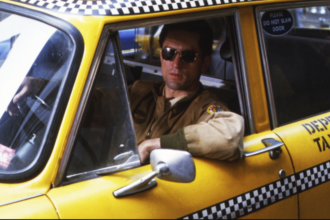Do you have what it takes to become an officer of the law? Many people who think about joining the police force never actually apply or interview, despite being interested in the field.
With the current focus on police brutality and racial profiling, it’s no wonder some people would be hesitant to pursue a career in law enforcement. Becoming a police officer requires commitment, long hours and hard work, but it can also be one of the most rewarding careers.
For instance, the sheer variety found in this line of work draws many people to the profession. There are also the rewarding opportunities it offers to help others daily in the community.
Whether you pursue it as your lifelong career or just as an entry-level position, there are numerous reasons you should consider this job. Read on to learn how to become a police officer and why you should pursue this career.
Steps to becoming a police officer
Becoming a police officer requires the proper education, training, attitude and outlook on life. It’s one of the most dangerous professions yet one of the most rewarding.
Here are six steps to becoming a police officer and an overview of the other requirements you’ll need to fulfill.
1. Obtain a high school diploma or GED
A high school diploma or GED is required to become a police officer. You can obtain a GED by passing the General Educational Development (GED) test.
The GED test covers four subject areas: reading, writing, math and science. You can usually take the GED test at your local community college or adult education center.
2. Meet other minimum requirements
To become a police officer, you must first meet the minimum requirements. These requirements vary by state but usually include being at least 21 years old, being a US citizen and having a clean criminal record.
In some states, you may also need to have completed some college coursework or have a certain amount of work experience. Once you’ve met the minimum requirements, you can begin the application process.
3. Obtain a bachelor’s degree
A college degree is not required to become a police officer, but many departments prefer applicants with at least some college experience.
A degree can also give you an edge when competing for jobs. If you decide to pursue a degree, consider a major in criminal justice or a related field.
4. Pass the law enforcement entrance exam
Before applicants can receive admission into the police academy, they must pass a law enforcement entrance exam. This exam tests your knowledge of fundamental law and order and your ability to think quickly and accurately under pressure. The better you score on the exam, the more likely you are to get admitted.
5. Graduate from the police academy
To become a police officer, you must graduate from the police academy, which is a training ground for new officers. It covers everything from criminal procedure to self-defense.
Training takes up to six months and covers various topics, including law enforcement techniques like firearm use, defense tactics against armed attackers and patrol procedures.
Once you graduate from the academy, you’ll be ready to hit the streets as a fully-fledged police officer.
6. Work toward a promotion
Being promoted in the police force is not an easy task. It requires years of experience, dedication to the job and a willingness to continue learning. You will need to continuously train and find new opportunities to learn through places like the LEO Network.
To work towards this goal, you can enroll in online police schooling programs that will give you fundamental leadership skills and teach you about law enforcement procedures.
That way, when you are ready for promotion, you’ll have all the right tools at your disposal.
What does a police officer do?
If you’re interested in becoming a police officer, read on to learn about what the job entails and what you can expect. Consider these five duties of a police officer before deciding if this is the career for you.
1. Protection of people and property
The most important duty of a police officer is to protect the lives and property of citizens. It includes responding to 911 calls, patrolling neighborhoods and investigating crimes.
In some cases, police officers may need to use force to protect the public or themselves. This action helps to deter crime and make sure that everyone is safe. Officers patrol in their squad cars but may also walk or ride bikes.
2. Investigating crime scenes
Investigating crime scenes includes collecting evidence, taking witness statements and searching for clues to help solve the case. It’s essential to be thorough and methodical when investigating a crime scene, as even the smallest piece of evidence could be crucial in solving the case.
3. Communicating with citizens
One of the essential duties of a police officer is communicating with citizens. This type of communication includes everything from answering questions to giving directions. Officers must effectively communicate with the public, which can help build trust between the police and the community.
4. Dealing with emergencies
When someone calls 911, they expect the police to show up and handle the situation. It can be anything from a car accident to a robbery in progress. No matter the emergency, police officers are trained to act quickly and efficiently.
5. Managing proportionate use of force
Managing proportionate use of force means using only the amount of force necessary to resolve a situation and no more. This action can be a difficult balance to strike, but it’s an important one. After all, the public entrusts police officers with great power, which they must use responsibly.
9 reasons to pursue a career in the police force
If you’re considering a career in law enforcement, it’s essential to consider why it might be the right choice for you. A law enforcement career offers many benefits, including the opportunity to impact your community.
However, these benefits come with their unique challenges as well. Before pursuing this line of work, you should always think carefully about what you want out of your career. Here are reasons why you should seek employment in the police force.
1. Excellent compensation and benefits
A career in the police force is an excellent way to earn a living. For instance, the average salary for police officers starts at $55,000 annually and can go up to as much as $100,000.
In addition to a competitive salary, most police departments offer great benefits, including health insurance, retirement plans and paid vacation days.
Because it’s such a stable job market, you’ll be able to take time off for vacations or illness without being fired or fearing for your job security. And if you’re good at what you do, there are opportunities for promotions.
Police officers in leadership positions usually have higher salaries than their subordinates. As the head of the department, they have control over employee training and which programs they participate in, among other things.
2. Opportunities to practice problem-solving skills
A job in the police force can allow you to practice problem-solving skills. Every day is different and requires one to tackle new challenges.
For example, one minute, you may respond to a robbery call, and the next, you may be dealing with an injured animal. In both cases, your main goal is to solve problems quickly so that other people’s lives are unaffected.
It’s challenging work, but it gives you opportunities to constantly sharpen your skills. More than likely, you’ll have a lot of diverse responsibilities when working for the police force.
Depending on what position you hold within the organization, there will be tasks that require more responsibility than others. One thing that remains constant no matter the task is the need for good judgment.
3. You have a more varied work schedule
A career in the police force can offer you a more varied work schedule than many other professions. This benefit means you can work different shifts, which can be great for those who don’t want to work traditional 9-5 hours.
While you will still have to work long hours, you will also have more opportunities for vacation and days off. For instance, while officers typically work 40 hours weekly, they are often compensated with 12-hour shifts that provide some time during the day for rest.
Additionally, this job is so demanding that most departments ensure their officers get plenty of time off between shifts or on their days off.
4. Job security
Unlike many other professions, there is always a demand for police officers regardless of the state of the economy, as people will always need protection and law enforcement.
For that reason, it means you will never have to worry about being out of a job. In addition, it offers excellent stability. For example, once you retire from the force, your pension payments will still come in every month, and you will still receive medical benefits.
5. Satisfaction from helping people
Personal satisfaction is one of the essential benefits of pursuing a career in law enforcement. Knowing that you have helped someone or provided them with closure makes all the long hours worth it.
You will be able to make a difference in your community and help keep people safe. Additionally, you will be able to work with a team of dedicated professionals committed to making a difference.
A police officer may need to deal with tragedies as well as stressful everyday incidents, but they also experience moments of joy when they rescue somebody or solve a crime.
6. Potential to work with animals
If you are an animal enthusiast, then a career in the police force might be right for you. Not only do police officers get to care for pets as part of their job but they also have access to equipment that can be used to find lost animals.
For example, some departments use specially trained dogs to help search for missing people, and some use horses and motorcycles to patrol rural areas.
With this kind of opportunity and love for animals, it’s no wonder many people pursue careers in law enforcement.
7. Exciting and unpredictable work environment
If you love to be on your toes and don’t want to know what’s going to happen next, this might be your career. Each day can be very different, whether helping an old lady cross the street or something more dramatic like apprehending a suspect.
The work environment will never get boring because every situation is unique. There is always something new to learn in such an unpredictable work environment.
Working in law enforcement also allows you to connect with people from all walks of life, which can help broaden your perspective on the world.
8. Professional respect from peers and the general public
The police force is a highly respected profession both by those who work within it and by members of the general public. Police officers earn this respect as they play an essential role in society.
They keep people safe, help others in need and enforce the law. You may not always like what they have to say or do, but you can’t deny that without them, our world would be a very different place.
Their job is demanding, and their days are long, but for many people, this only increases their desire to become one of them.
9. Potential for self-growth and promotion
A career in the police force can offer you many opportunities for self-growth and promotion. With hard work and dedication, you can move up through the ranks of the police force, gaining new skills and knowledge.
For example, if you were to start as a patrol officer, you could later become an undercover officer or detective. There are also other positions within the police force might be better suited to your interests, such as community policing or crime prevention.
Wrapping up
A career in the police force can be demanding and dangerous but can also be enriching. If you have a passion for justice and helping others, then a career in law enforcement may be perfect for you.
For instance, it will give you purpose and fulfillment, allow you to serve your community and help you meet your goals. If you want to go down this path, going into the profession with a sense of duty and integrity is essential.














